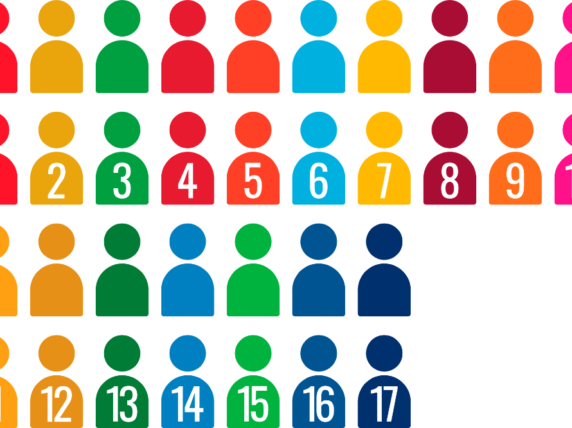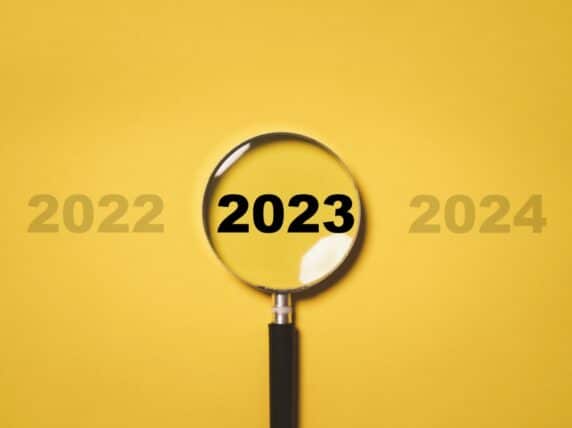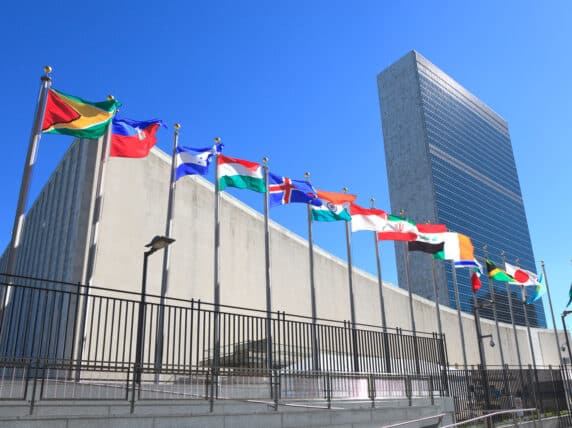Almost halfway to 2030: re-making the case for the SDGs
We are almost at the halfway point for the Sustainable Development Goals (SDGs).
First agreed in 2015, the 2030 deadline to achieve them is fast approaching. Even before Covid-19, achieving them was going to be a huge challenge, but the events of the past few years mean we need to redouble our efforts.
It is clear that instability and crises aren’t going away, in fact they are the reasons that the SDGs are so important. Unless we, as a sector, do more to communicate the vital importance of the SDGs, our calls on others to do so will ring hollow.
The SDGs provide the framework to address the interconnected crises of climate change, Covid-19, conflict, poverty and inequality, while leaving no one behind. The 2030 Agenda is a compelling vision of what the future could look like. It describes how progress in environmental, economic and social development are all interrelated – and that change can only be achieved when governments, businesses, international agencies, NGOs and civil society work together in a coherent way.
To achieve the transformative potential of the SDGs, the civil society sector must come together and be vocal about what is needed. These goalsare the World’s To-Do List, a framework for a just and sustainable future.
For sustainable change to happen, we need to find better ways of working together, while clearly articulating our contribution to global change. Our sector started out strong on the SDGs, advocating for this ambitious plan to cover all our thematic areas. But have organisations subsequently retreated into silos?
Working together to achieve the change outlined as part of the SDGsremains critical.
A comprehensive agenda for change at all levels
While the SDGs were agreed upon within the UN walls and by all member states, their value and the urgency to achieve them must trickle down to key upcoming international events such as The World Economic Forum’s annual meeting in Davos, the G7, UN High-Level Political Forum, UN General Assembly, C40, G20, and Cop27. These political events provide an opportunity to come together and push towards an existing and comprehensive agenda – the SDGs.
But this must not be limited to global events. Regional events and local advocacy around national processes all present opportunities for organisations to drive forwards the implementation of the SDGs.
Subscribe to our newsletter
Our weekly email newsletter, Network News, is an indispensable weekly digest of the latest updates on funding, jobs, resources, news and learning opportunities in the international development sector.
Get Network NewsThe UN is increasingly using the SDGs in development planning alongside governments at the national level. Governments themselves are also increasingly aligning their development strategies and budgets to the SDGs, and we’re seeing cities like Bristol fully adopt the SDGs in their work.
The 2030 Agenda sets an ambitious vision of multistakeholder cooperation – it is a blueprint for partnership to tackle the most pressing challenges of our time. Civil society brings a wealth of expertise, experience and resources, and it is now time to raise our ambition.
More and more businesses, large and small, are embracing the SDGs in their external marketing, corporate social responsibility initiatives and internal processes. For example, in September 2021, we saw businesses such as Unilever and Salesforce share reminders of the SDGs as the World’s To-Do List through physical and digitalactivationsas part of their role as Business Avengers.
The use of the SDGs adds a layer of accountability to businesses and embracing initiatives such as the UN Global Compact is the first step for many. While these are steps in the right direction, all businesses need to incorporate and sustain the Goals at all levels – from staff engagement through to sustainable supply chains.
A practical way to tackle interconnected issues
The SDGs call for integrated solutions that create synergies across the various Goals, but so far there has been a lack of thought leadership, perpetuated by existing funding limitations, to help roll out programmes that explicitly tackle various SDGs.
Some Bond members have put the systems in place to align their results framework to the SDGs. This is made possible by the fact that the SDGs have targets and indicators that can be easily adapted to existing monitoring systems.
But you don’t need to be a big NGO with lots of funds to incorporate the SDGs in your programmes. Even small NGOs can use them in their planning, monitoring andevaluation. As a sector, we need to do more to build our strategies aroundtheSDGs, measure our impact as a contribution tothese Goalsand advocate for donors to align funding and programming with them
Where do we go from here?
The pandemic and ongoing global conflicts havehighlighted the world’s interconnectedness, whilst reversing necessary progress toward the SDGs. Rather than reinvent the wheel, there’s an urgent need for a sector-wide advocacy push toward the SDGs. The halfway mark in summer 2023 is fast approaching, so time is of the essence.
As a sector, we need to reembrace the SDGs and shift the urgency of our language. If we don’t, it will hurt the credibility of our aim to help build a more just, equal and sustainable world. Our calls on governments and the private sector to step up their efforts will fall flat if we ourselves don’t embrace the SDGs more explicitly in both our external communications and internal ways of working.
This includes ensuring that our existing civil society networks – whether working on climate change, health or inequality – align their work to the SDGs. It also requires us to communicate our sector’s commitment to the SDGs as a framework and build synergies across programmatic portfolios, both within and among organisations.
We need to be bold in the way we push for policy solutions that can progress multiple Goals and understand the barriers that have prevented civil society from communicating more effectively on the SDGs.
From organisational leaders to our colleagues who work with communities, we need the SDGs to be used by all.
Category
News & ViewsThemes
SDGs



